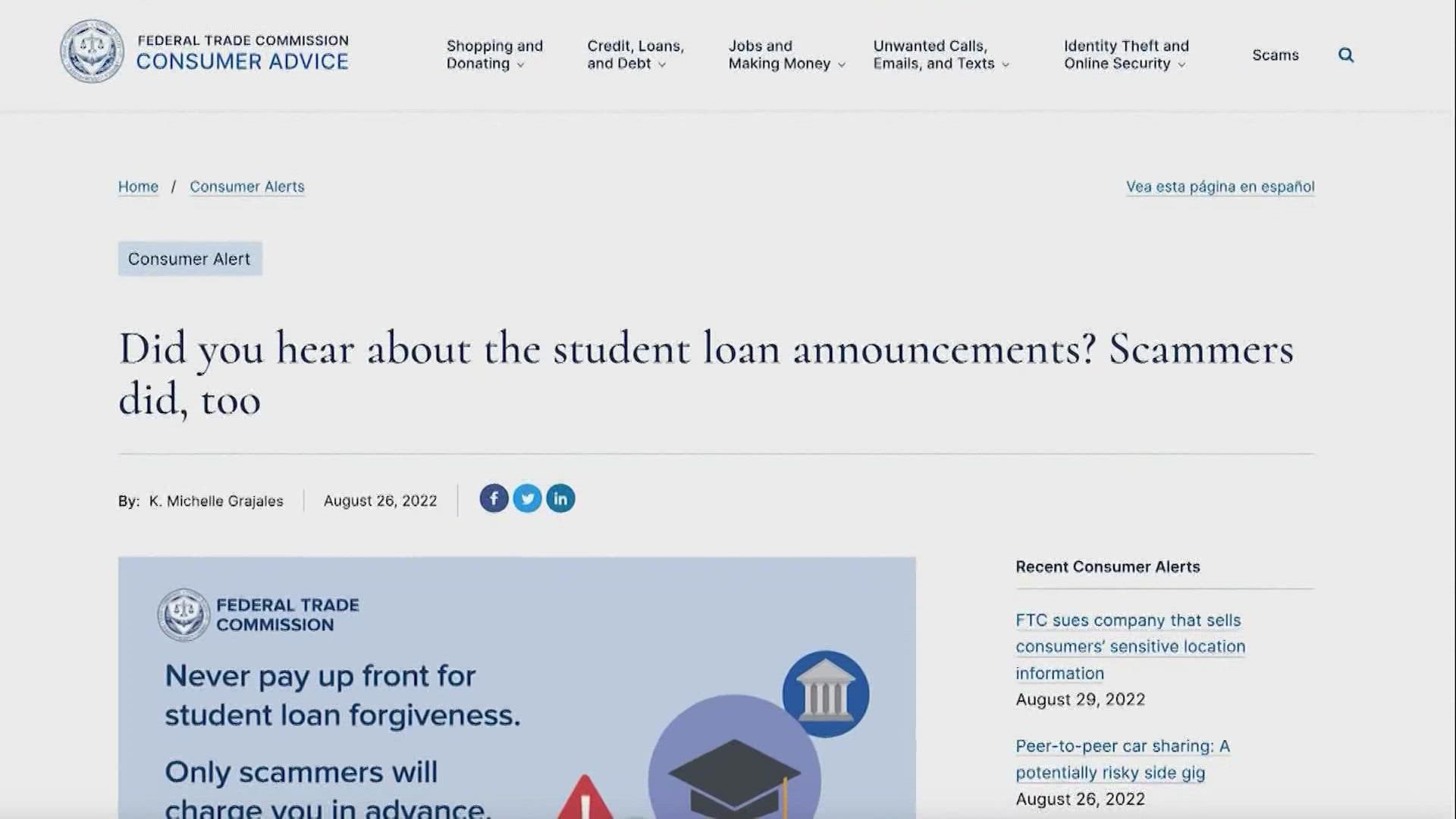SEATTLE — President Joe Biden recently announced a three-part plan that will cancel $10,000 of federal student loan debt for low- to middle-income borrowers. Some borrowers could be eligible for up to $20,000 in student loan forgiveness.
Since the program was announced, agencies such as the Better Business Bureau of Washington warn the debt relief program creates a prime opportunity for scammers to take advantage.
BBB Tips to Avoid Loan Forgiveness Scams:
- Get to know the terms of your student loan and the relief program before acting. Always do your research before sharing personal information.
- Never pay money for a free government program. A real government agency will not ask for an advanced processing fee. These are all red flags of a scam.
- Be wary of out-of-the-blue calls, emails or text messages claiming to be from the government. In general, the government will not contact you using these methods unless you grant permission.
- Watch out for phony government agencies or programs. If you speak to someone claiming to be a government representative who is offering you student loan relief, do some research before you agree to anything. Scammers often make up look-alike government websites that sound similar to legitimate agencies or programs.
- Think something seems suspicious? Reach out to the agency directly. If you have any concerns about an alleged government representative's legitimacy, hang up the phone or stop emailing/texting. Then, find the official contact information (look on ED.gov and studentaid.gov or other official sites) and call to verify. Then, report suspicious calls or messages.
- Be careful, even if the information comes from a friend. Even if a close friend or family member you trust sent you the information regarding student loan relief, make sure the claims are real first. During the COVID-19 pandemic, BBB received many reports of hacked social media accounts being used to spread government impostor scams.

